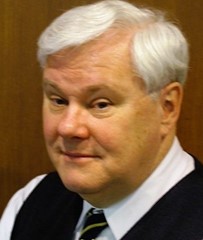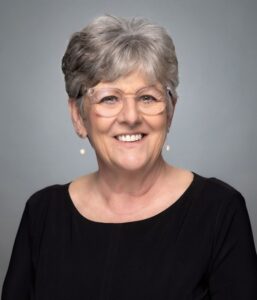This series consists of three webinars where attendees will learn from existing programs how a joint community/provider-led Recovery-Oriented System of Care (ROSC) can empower and positively impact America's growing mental health and substance use challenges.
Session 1: June 6, 2024
12:00 PM–2:00 PM CT/ 1:00 PM–3:00 PM ET
Session 1 of this 3-part series will begin by reviewing core definitions, learning key principles, and identifying the "planks" of success when establishing a ROSC as an "organizing construct" to all community health care and wellness services. Other central themes that will be shared are best practices for attaining and sustaining community involvement and lessons learned while building, maintaining, and evaluating the "community up" model of care. Examples of specific lived experiences will also be presented—in particular, the implementation of a recovery-focused care system in Hancock County, Ohio, as highlighted in SAMHSA's TIP 65.
Intended Audience:
State and County governmental organizing and policy leaders; providers, those in recovery, families and general community.
CERTIFICATES:
Registrants who fully attend this event or training will receive a certificate of attendance via email within two weeks after the event or training.
TRAINERS:
 Dr. Flaherty is a clinical psychologist with more than 42 years of practice. In 1999 he founded the Institute for Research, Education and Training in the Addictions (IRETA) in Pittsburgh. Prior, he was the head of Institute for Psychiatry and Addiction at the St. Francis Health System in Pittsburgh. While at St. Francis, in collaboration with the University of Pittsburgh Medical Center, he co-led these institutions in the creation of what is today Pennsylvania’s largest non-profit behavioral managed care company, Community Care Behavioral Health. He has authored over 26 Federal and Foundational grants and more than 50 published articles, chapters and monographs on topics related to substance use policy, prevention, treatment, and recovery. A pioneering and visionary leader in the science of recovery, he has spoken in 42 states on recovery focused care. A past adviser to the White House Office National Drug Control, he assisted in the development of early brief substance use screening and intervention (2003/Tap 33, SBIRT, 2013), the first White House Overdose Prevention Plan (2015), as co-leader and facilitator of W. Pennsylvania’s initial Overdose Strategy (2017), and in the design of Pennsylvania’s in its Overdose Plan (Commonwealth, 2018). Today he continues to focus on clinical practice, workforce challenges (Annapolis Coalition) and designing recovery focused models of behavioral health. His work is featured in SAMHSA’s recently published TIP 65, Counseling Approaches to Promote Recovery from Problematic Substance Use and Related Issues (2023).
Dr. Flaherty is a clinical psychologist with more than 42 years of practice. In 1999 he founded the Institute for Research, Education and Training in the Addictions (IRETA) in Pittsburgh. Prior, he was the head of Institute for Psychiatry and Addiction at the St. Francis Health System in Pittsburgh. While at St. Francis, in collaboration with the University of Pittsburgh Medical Center, he co-led these institutions in the creation of what is today Pennsylvania’s largest non-profit behavioral managed care company, Community Care Behavioral Health. He has authored over 26 Federal and Foundational grants and more than 50 published articles, chapters and monographs on topics related to substance use policy, prevention, treatment, and recovery. A pioneering and visionary leader in the science of recovery, he has spoken in 42 states on recovery focused care. A past adviser to the White House Office National Drug Control, he assisted in the development of early brief substance use screening and intervention (2003/Tap 33, SBIRT, 2013), the first White House Overdose Prevention Plan (2015), as co-leader and facilitator of W. Pennsylvania’s initial Overdose Strategy (2017), and in the design of Pennsylvania’s in its Overdose Plan (Commonwealth, 2018). Today he continues to focus on clinical practice, workforce challenges (Annapolis Coalition) and designing recovery focused models of behavioral health. His work is featured in SAMHSA’s recently published TIP 65, Counseling Approaches to Promote Recovery from Problematic Substance Use and Related Issues (2023).
Dr. Flaherty is a retired Captain (Surface Warfare) in the U.S. Naval Reserve with 27 years’ service. He holds B.A. degrees in Philosophy and Psychology from the Pennsylvania State University; and a M.A. and Ph.D. in clinical psychology from Duquesne University. He is especially proud of his 3 adult children and 5 grandsons.
 Zach Thomas is an Ohio Certified Prevention Specialist and the Director of Wellness and Education at the Hancock County Board of Alcohol, Drug Addiction and Mental Health Services. He is responsible for the coordination and management of the Hancock County Community Partnership and Community Coalition on Addiction which are long-standing coalitions focused on substance use prevention and mental health promotion. Zach manages the Board’s prevention interests, public relations, and leads work in cultural humility and health equity. In 2021, he was hired by the University of Findlay to serve as the Lead Strategist for the Center for Civic Engagement which serves as a backbone entity that provides support to seven other community-based coalitions in Hancock County.
Zach Thomas is an Ohio Certified Prevention Specialist and the Director of Wellness and Education at the Hancock County Board of Alcohol, Drug Addiction and Mental Health Services. He is responsible for the coordination and management of the Hancock County Community Partnership and Community Coalition on Addiction which are long-standing coalitions focused on substance use prevention and mental health promotion. Zach manages the Board’s prevention interests, public relations, and leads work in cultural humility and health equity. In 2021, he was hired by the University of Findlay to serve as the Lead Strategist for the Center for Civic Engagement which serves as a backbone entity that provides support to seven other community-based coalitions in Hancock County.
 Precia Stuby is the Executive Director of the Hancock County Board of Alcohol, Drug Addiction and Mental Health Services (ADAMHS), a position she has held since 1997. Ms. Stuby holds a bachelor’s and master’s degree in social work from Ohio State University.
Precia Stuby is the Executive Director of the Hancock County Board of Alcohol, Drug Addiction and Mental Health Services (ADAMHS), a position she has held since 1997. Ms. Stuby holds a bachelor’s and master’s degree in social work from Ohio State University.
Ms. Stuby is a Licensed Independent Social Worker, a graduate of the Hancock Leadership Program and the Mental Health Executive Leadership Program at Case Western Reserve University. She received the Leadership Award from Ohio NAMI, was named Public Health Champion of the Year by the Findlay City Health Department, is the Past Board President for the Ohio Association of County Behavior Health Authorities, has a published interview by William White on Recovery Management and is the recipient of the Lifetime Achievement Award from the Northwest Ohio Chapter of the National Association of Social Work, the Athena Leadership Award and the Association of Leadership Programs Distinguished Leadership Award.
Her current community Involvement includes serving on the governing Boards of the Center for Civic Engagement and Welcome to a New Life. She is also a member of the Opiate and Other Addictions Coalition, and the Findlay Rotary Club.
Since 2013, Precia has been leading the ROSC Transformation for Hancock County. She completed ROSC Leadership Training Institute sponsored by the Great Lakes ATTC with Dr. Ijeoma Achara in 2002; participated in the ROSC Thought Leaders Summit in 2016; and completed a ROSC Training of Trainers in 2016. She has presented her work at the state and national level.
 Mee Lee Kim is a Research Scientist within the Institute for Behavioral Health at Brandeis University. She has nineteen years of experience conducting research and evaluation using mixed methods. She applies a participatory action approach when working with community-based organizations and other community stakeholders. She is the Brandeis Principal Investigator of multiple federally funded projects to address or prevent substance misuse and improve mental health by building community capacity to address underlying risk factors while fostering protective factors. These projects include an expansion of a Systems of Care Model for Children/Youth with serious emotional disturbance, Certified Community Behavioral Health Clinic to integrate health and behavioral health services, enhancements to peer recovery support services, and improving access to services for youth and families with traumatic stress. She serves as the Brandeis Principal Investigator of the School-based Telebehavioral Health Pilot Project in partnership with the Brookline Center for Community Mental Health and the Massachusetts Department of Public Health. She also has ten years of experience working with state administrators to enhance Prescription Drug Monitoring Programs (PDMPs) as a public health and clinical decision-making tool.
Mee Lee Kim is a Research Scientist within the Institute for Behavioral Health at Brandeis University. She has nineteen years of experience conducting research and evaluation using mixed methods. She applies a participatory action approach when working with community-based organizations and other community stakeholders. She is the Brandeis Principal Investigator of multiple federally funded projects to address or prevent substance misuse and improve mental health by building community capacity to address underlying risk factors while fostering protective factors. These projects include an expansion of a Systems of Care Model for Children/Youth with serious emotional disturbance, Certified Community Behavioral Health Clinic to integrate health and behavioral health services, enhancements to peer recovery support services, and improving access to services for youth and families with traumatic stress. She serves as the Brandeis Principal Investigator of the School-based Telebehavioral Health Pilot Project in partnership with the Brookline Center for Community Mental Health and the Massachusetts Department of Public Health. She also has ten years of experience working with state administrators to enhance Prescription Drug Monitoring Programs (PDMPs) as a public health and clinical decision-making tool.

Ginny Williams is a dynamic leader and Licensed Professional Clinical Counselor based in Ohio, recognized for her expertise in driving transformative change within organizations. With a diverse background spanning various roles, Ginny brings a wealth of experience to her current position as Chief Culture & Transformation Officer for Family Resource Center, a $17 million community behavioral health organization.
Ginny's journey in mental health began as a prevention specialist, evolving into direct service provision encompassing emergency services, individual and group counseling, with a clinical focus on grief and loss. Her commitment to professional development led her to obtain an Advanced Grief Recovery Specialist credential from the Grief Recovery Institute, further enhancing her ability to support individuals navigating challenging life transitions.
Prior to her current role, Ginny held positions including Assistant Director of Counseling Services and adjunct faculty member in the Psychology Department at The University of Findlay. Her tenure as Director of Adult Clinical Services and Chief Clinical Officer for Family Resource Center underscored her adeptness in managing clinical operations and driving organizational growth.
In her current capacity, Ginny is instrumental in reshaping organizational cultures and driving strategic initiatives aimed at enhancing employee engagement and organizational effectiveness. Her expertise in talent optimization as a Predictive Index Practioner, strategic planning, and collaborative relationship-building has been instrumental in introducing innovative services and programs to address community needs effectively.
Her specialties include designing comprehensive leadership development programs, fostering a culture of growth and adaptability, and driving organizational performance through effective leadership and talent management strategies.

Nichole Coleman is the County Veterans Service Officer/Executive Director Hancock County Veterans Service Office. Under her leadership, the office has served more than eight times the number of veterans annually and increased the VA expenditures by more than $16.8 million for county veterans and their family members. Additionally, five innovative veteran resiliency programs were created to provide mental health support, additional recovery tools, and improved quality of life.
Register for the upcoming webinars in this series!
12:00 PM–2:00 PM CT/ 1:00 PM–3:00 PM ET
Finding the workforce to address the needs of the community and build a locally defined ROSC is critical to its success. As a ROSC, new opportunities for an expanded workforce emerge. This webinar will tie this critical element of creating a workforce based on the actual community needs to a regionally assessed and defined system of care. The presenters will share ways of finding professional/peer workers for all segments and levels of the continuum of care, education-informed prevention-intervention-treatment-recovery, methods to locate community resources to develop and retain their ROSC workforce, and some of the lessons learned in the process of building an integrated and effective coalition.
12:00 PM–2:00 PM CT/ 1:00 PM–3:00 PM ET
Within a ROSC, process is as important as outcome. Sustaining a community/provider ROSC will depend on community ownership of the challenges they may face when maintaining a balanced approach to the relevant processes and outcomes. In this third and final webinar of the ROSC series, the presenters will review those ways to keep the community invested in its ROSC and the outcomes of a ROSC in Hancock County and elsewhere. They will also discuss specific recovery programs for high-risk populations (i.e. veterans, harm reduction, pregnant women/infants, overdose prevention, those in recovery, youth).